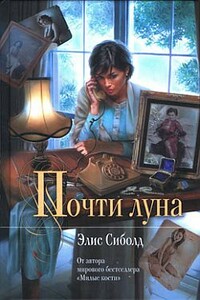“I wonder if Hal Heckler still owns that?” Ruth said. “I had a crush on him when we were growing up.”
Then she turned toward the lot. They were quiet. Ruth moved in ever-diminishing circles, with the hole and its vague edge as their goal. Ray trailed just behind Ruth as she led the way. If you saw it from a distance, the sinkhole seemed innocuous – like an overgrown mud puddle just starting to dry out. There were spots of grass and weeds surrounding it and then, if you looked close enough, it was as if the earth stopped and a light cocoa-colored flesh began. It was soft and convex, and it drew in items placed on top of it.
“How do you know it won’t swallow us?” Ray asked.
“We’re not heavy enough,” Ruth said.
“Stop if you feel yourself sinking.”
Watching them I remembered holding on to Buckley’s hand the day we went to bury the refrigerator. While my father was talking to Mr. Flanagan, Buckley and I walked up to the point where the earth sloped down and softened, and I swore I felt it give ever so slightly beneath my feet. It had been the same sensation as walking in the graveyard of our church and suddenly sinking into the hollow tunnels that the moles had dug among the headstones.
Ultimately it was the memory of those very moles – and the pictures of their blind, nosy, toothsome selves that I sought out in books – that had made me accept more readily being sunk inside the earth in a heavy metal safe. I was mole-proof, anyway.
Ruth tiptoed up to what she took to be the edge, while I thought of the sound of my father’s laughter on that long-ago day. I made up a story for my brother on the way home. How underneath the sinkhole there was a whole village inside the earth that no one knew about and the people who lived there greeted these appliances like gifts from an Earthly heaven. “When our refrigerator reaches them,” I said, “they will praise us, because they are a race of tiny repairmen who love to put things back together again.” My father’s laughter filled the car.
“Ruthie,” Ray said, “that’s close enough.”
Ruth’s toes were on the soft part, her heels were on the hard, and there was a sense as I watched her that she might point her fingers and raise her arms and dive right in to be beside me. But Ray came up behind her.
“Apparently,” he said, “the earth’s throat burps.”
All three of us watched the corner of something metal as it rose.
“The great Maytag of ’sixty-nine,” Ray said.
But it was not a washer or a safe. It was an old red gas stove, moving slow.
“Do you ever think about where Susie Salmon’s body ended up?” asked Ruth.
I wanted to walk out from underneath the overgrown shrubs that half-hid their ice blue car and cross the road and walk down into the hole and back up and tap her gently on the shoulder and say, “It’s me! You’ve done it! Bingo! Score!”
“No,” Ray said. “I leave that to you.”
“Everything is changing here now. Every time I come back something is gone that made it not just every other place in the country,” she said.
“Do you want to go inside the house?” Ray asked, but he was thinking of me. How his crush had come when he was thirteen. He had seen me walking home from school ahead of him, and it was a series of simple things: my awkward plaid skirt, my peacoat covered in Holiday’s fur, the way what I thought of as my mousy brown hair caught the afternoon sun so that the light moved fluidly from spot to spot as we walked home, one behind the other. And then, a few days later, when he had stood in social science class and accidentally read from his paper on Jane Eyre instead of the War of 1812 – I had looked at him in a way he thought was nice.
Ray walked toward the house that would soon be demolished, and that had already been stripped of any valuable doorknobs and faucets late one night by Mr. Connors, but Ruth stayed by the sinkhole. Ray was already inside the house when it happened. As clear as day, she saw me standing there beside her, looking at the spot Mr. Harvey had dumped me.
“Susie,” Ruth said, feeling my presence even more solidly when she said my name.




